9 “Healthy” Habits That Are Shortening Your Life, According to Experts
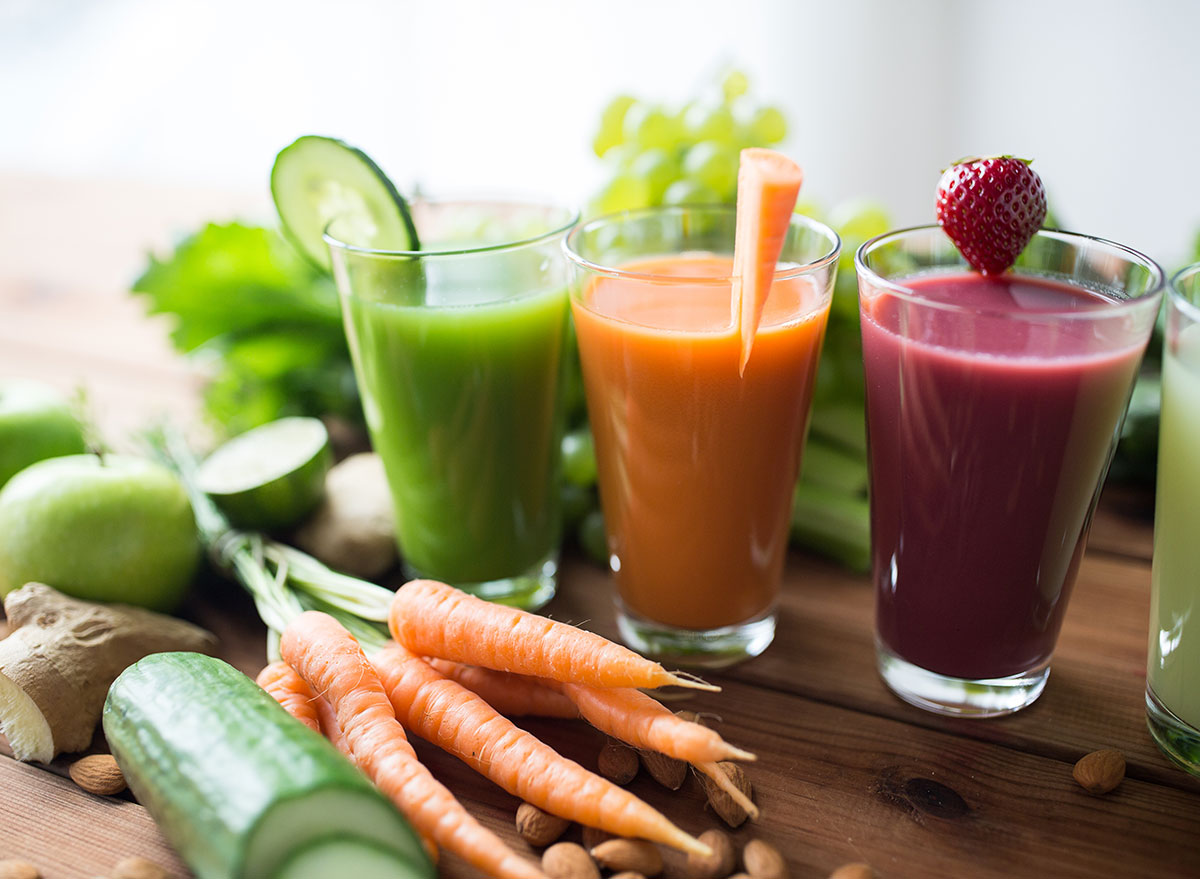
Okay, folks. You already know that your hours-long TV binges aren’t doing you any favors. But did you know that habits commonly touted as good-for-you can actually wreak havoc on your health?
We asked doctors, dietitians, and nutrition experts for their help uncovering these so-called healthy habits that may actually reduce your lifespan, and lead to other negative health consequences. Read on, and you’ll never look at juicing, coconut oil, and cotton swabs the same way. And for more healthy living inspiration check out Drinking Habits That Are Shortening Your Life, According to Science.
Eating a low-fat diet.
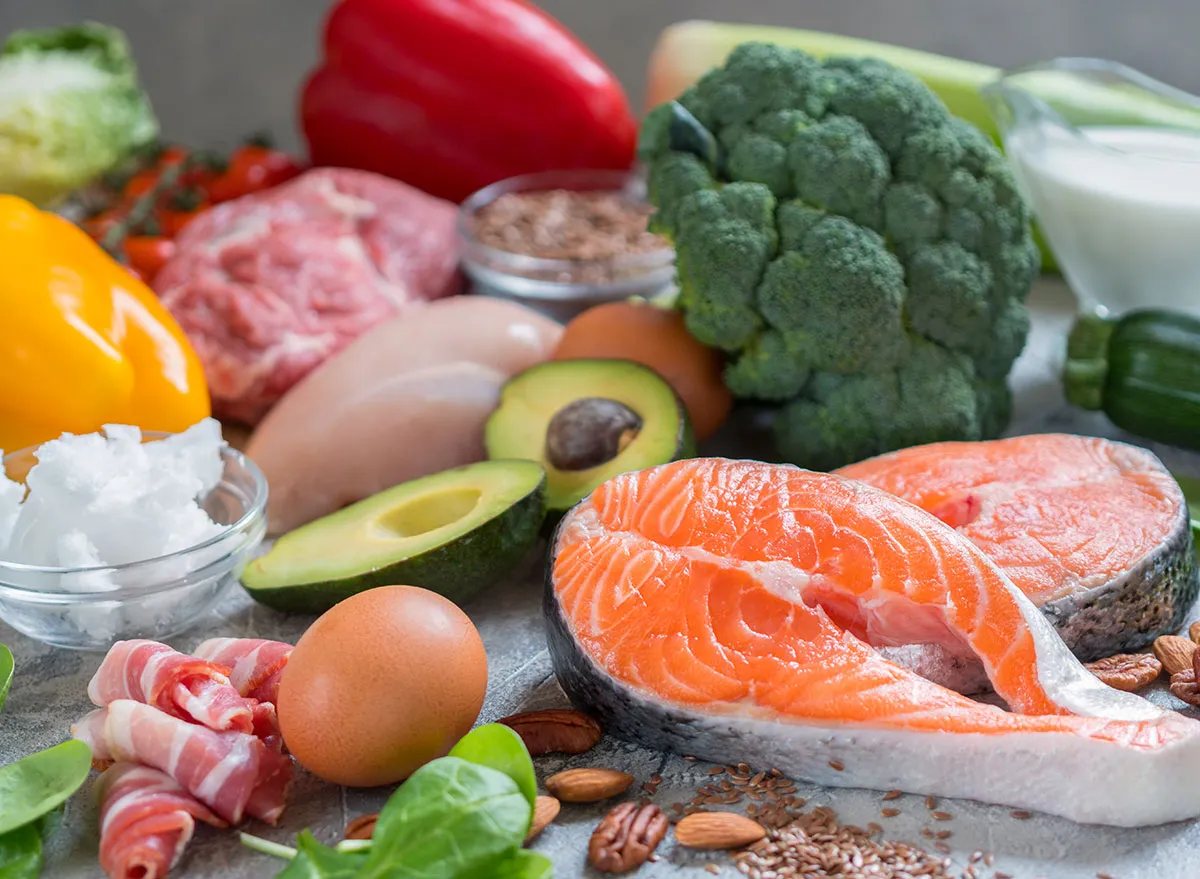
Rachel Fine, MS, RD, owner of To The Pointe Nutrition, debunks the idea that eating low-fat will keep you thriving: “Fat is a key component to our body’s hormonal balance—specifically the hormone leptin, which promotes that ‘feel-full’ feeling after and between meals,” she says. “Furthermore, high-fat foods that are particularly high in Omega-3 fats (olive oil, flax, almond butter) are essential for brain and heart health and might even lessen inflammation in the body.”
Going overboard with exercise.

We know, we know, we love getting our HIIT sessions in, too, especially as the stir-crazy months of staying at home drag on. But: “Too much exercise can actually be bad for you, particularly if you do so in an obsessive way,” says Taryn Myers, Ph.D., Associate Professor of Psychology at Virginia Wesleyan University. “In addition to overuse injuries, excessive exercise has been linked to anxiety, disordered eating, and body dysmorphia, particularly muscle dysmorphia in men. Excessive exercise has also been linked with mortality in heart attack survivors.”
Currently, the American Heart Association recommends adults get “at least 150 minutes per week of moderate-intensity aerobic activity or 75 minutes per week of vigorous aerobic activity, or a combination of both, preferably spread throughout the week.” For more on getting your sweat on, check out these 6 Exercise Mistakes That Prevent Weight Loss, According to Experts.
Only focusing on cardio.

Got that exercise bike or power walking time in? Great, well just like overdoing it in the exercise department can be bad for you, exclusively focusing on cardiovascular activity isn’t a boon for your health, either. “Many people glorify cardiovascular exercises since we’re so focused on ‘maximizing calorie burn,'” counsels registered dietitian Colleen Christensen, RD. “However, when you skip strength training you’re actually missing out on some amazing metabolic effects and increasing lean body mass. Strength training may also help to improve cognition, insulin resistance, blood pressure, and bone mineral density. By the way, do you know about these 5 Underrated Benefits of Exercise, According to Science?
Juicing all the time.
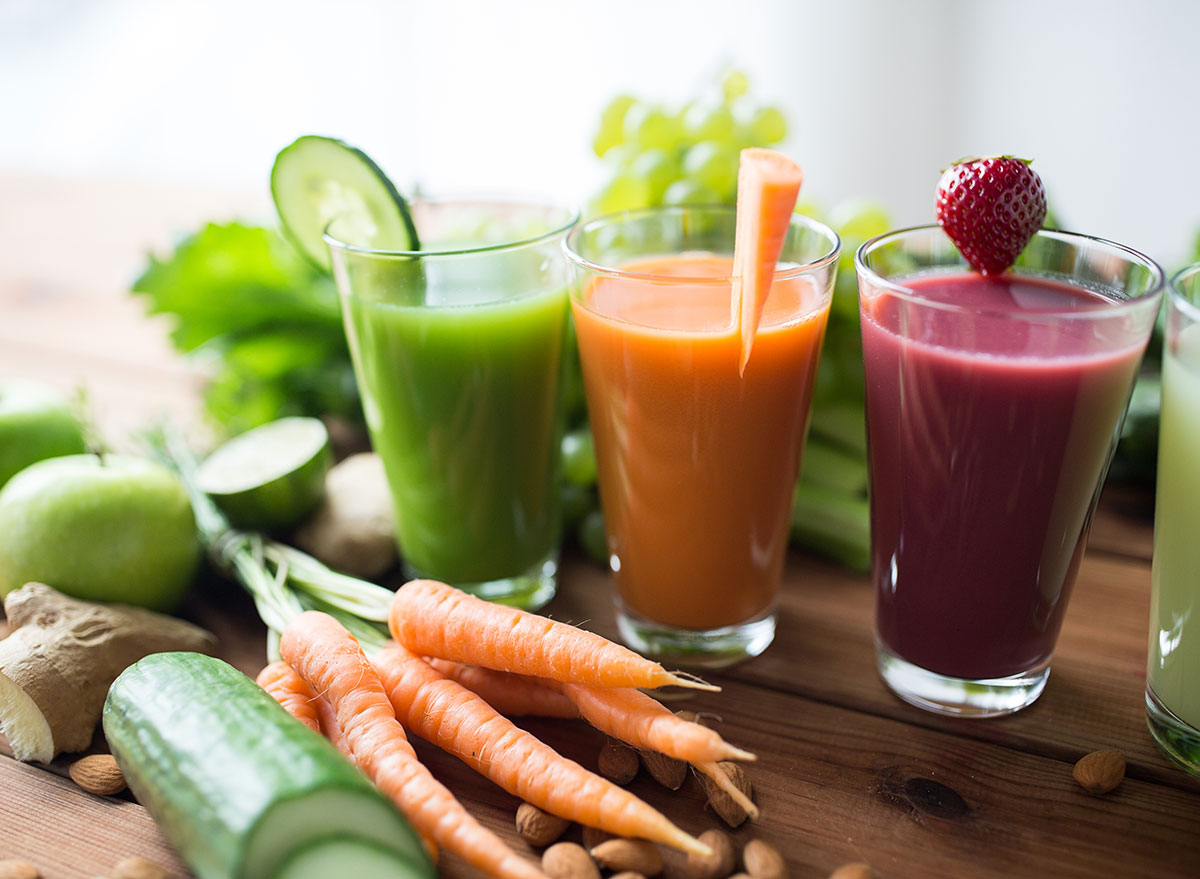
A few green juices a week might be okay, but juicing every day and/or partaking in regular juice cleanses may cause more harm than good. “Juicing has become very popular in the wellness industry. Although juicing is a great way to get in vitamins and minerals, there is no research to show that juicing has a health benefit,” says registered dietitian Melanie Betz MS, RD, CSR, CSG, of TheKidneyDietitan.org. “In fact, juicing often contributes to excess sugar intake, which is associated with a higher risk of heart disease,” she elaborates, noting that juicing can also contribute to very high oxalate intake, which can cause kidney stones and has been reported to cause kidney disease.
In general, Betz says is you really enjoy juicing, stick to an eight-ounce glass two times per week. “I would prefer people EAT their fruit to get all the fiber,” she notes. Whatever you do, just don’t buy any of the 10 Fruit Juices to Always Leave on Grocery Store Shelves.
Dieting solely for weight loss.

When you only embark on an eating plan with the goal of dropping serious pounds versus supporting an overall healthier lifestyle, you’re setting yourself up for failure. “The biggest habit people think is healthy but actually increases mortality is dieting for weight loss,” cautions licensed dietitian/nutritionist Caitlin Self, MS, CNS, LDN. “Studies have shown that the way we diet for weight loss—using severe restriction—actually contributes to the development of not only eating disorders but also to overall chronic health conditions. One of the main reasons is that dieting causes weight cycling — rapidly losing and gaining weight — which is an independent risk factor for cardiometabolic morbidity and mortality and type 2 diabetes. For help, try these 26 Easy Ways to Keep The Weight Off, According to Dietitians.
Oil pulling.
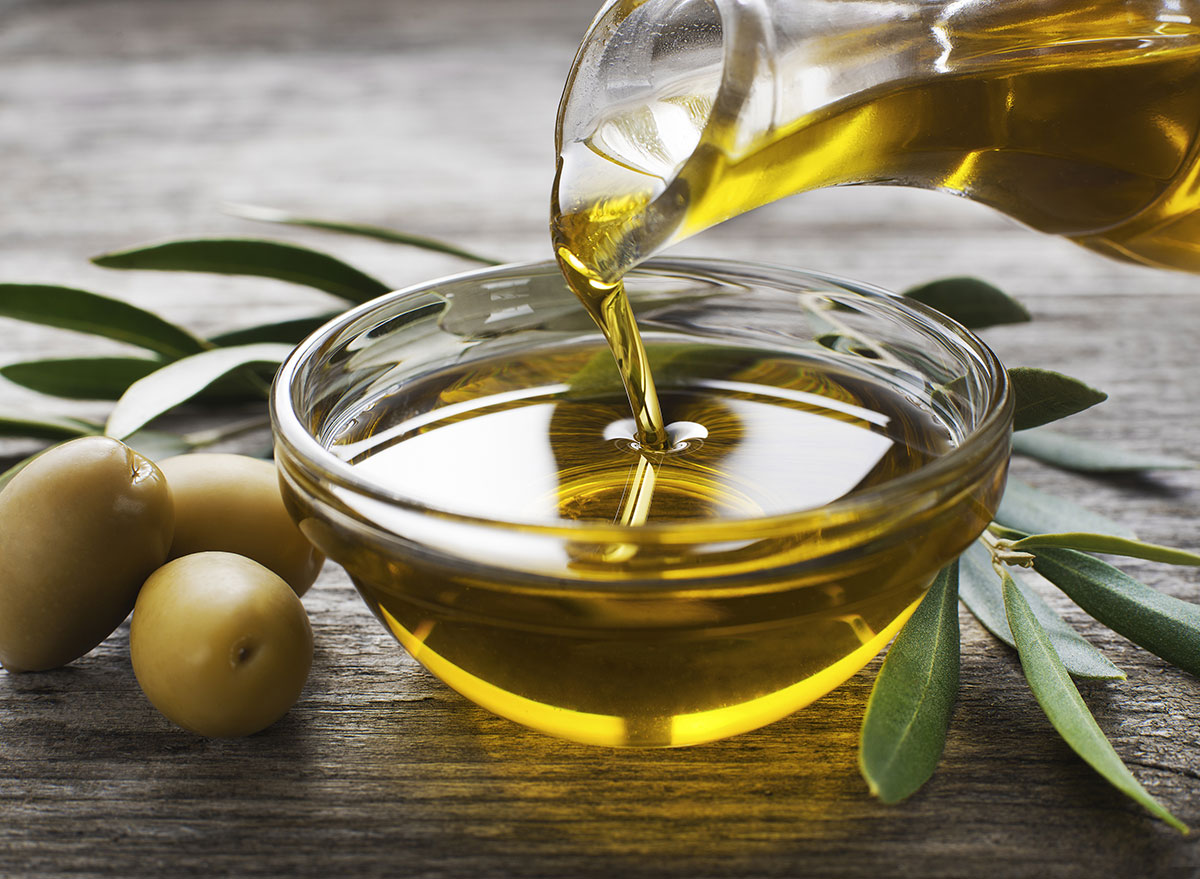
Steer clear of this downright dangerous phenomenon which involves swishing oil around your mouth for 15+ minutes. “Unqualified wellness experts have been touting oil pulling as a miracle cure for everything from gingivitis to cancer. However, you risk contracting lipoid pneumonia, which occurs when any oils are aspirated into the lungs,” says Dr. Chris Airey, a practicing physician in the U.K. and the medical director at Optimale, providing telehealth solutions for men with low testosterone. “Even if you don’t accidentally choke on the oil, droplets can find their way to your lungs and potentially cause major health concerns,” he elaborates, adding that lipoid pneumonia is what makes vaping so dangerous, and oil pulling carries a risk of this condition.
Relying mainly on red meat for protein.
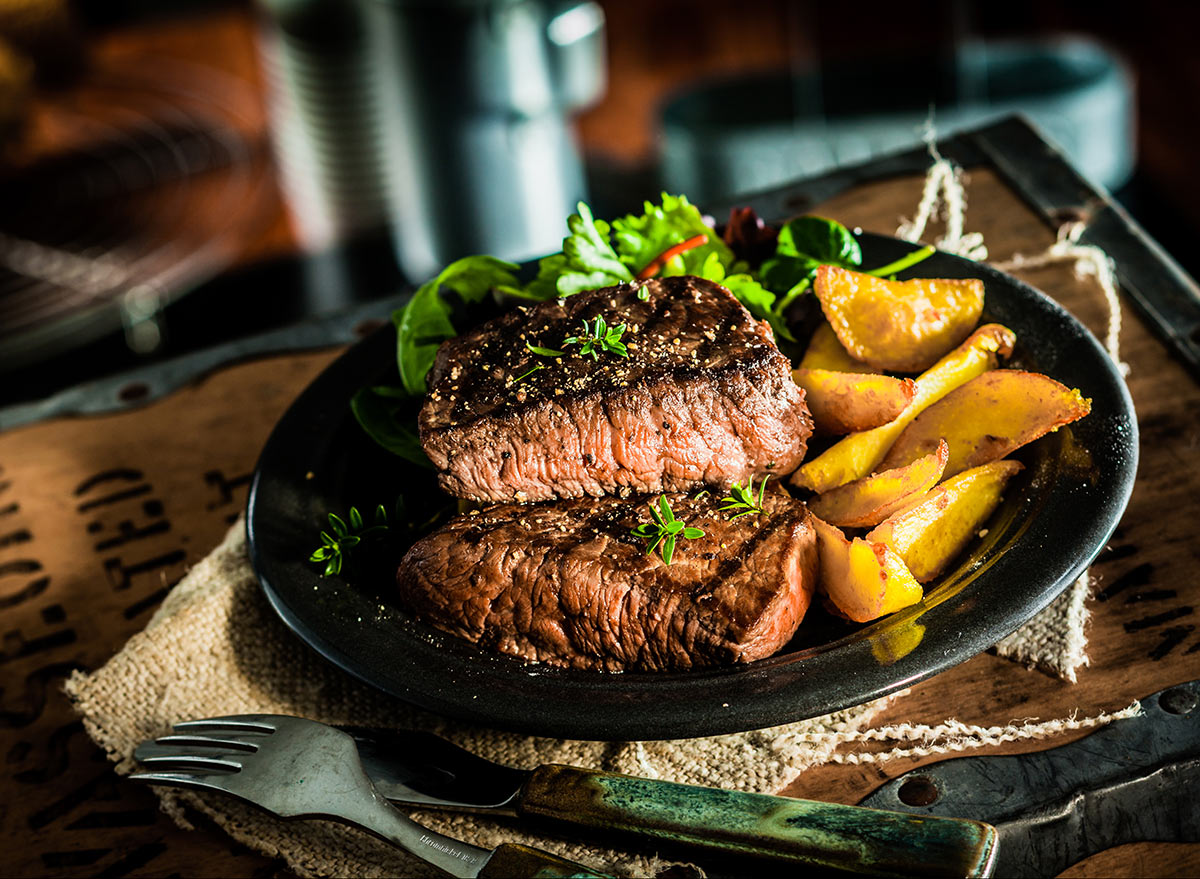
Pass the lentils or fish instead, please. “While red meat is a good source of complete protein, the heavy reliance on red meat as the main source of protein can lead to an increased risk of colorectal cancer,” warns Valentina Duong, RD, a nutritionist and powerlifter, specializing in weight management and performance nutrition, pointing to a review on red meat and colorectal cancer that found that high intakes of red meat and processed meats can increase the risk of colorectal cancer by 20-30%.
If you’re not sure if you’re red meat intake may be unhealthy, check out 6 subtle signs you’re eating too much red meat.
Drinking smoothies every day.
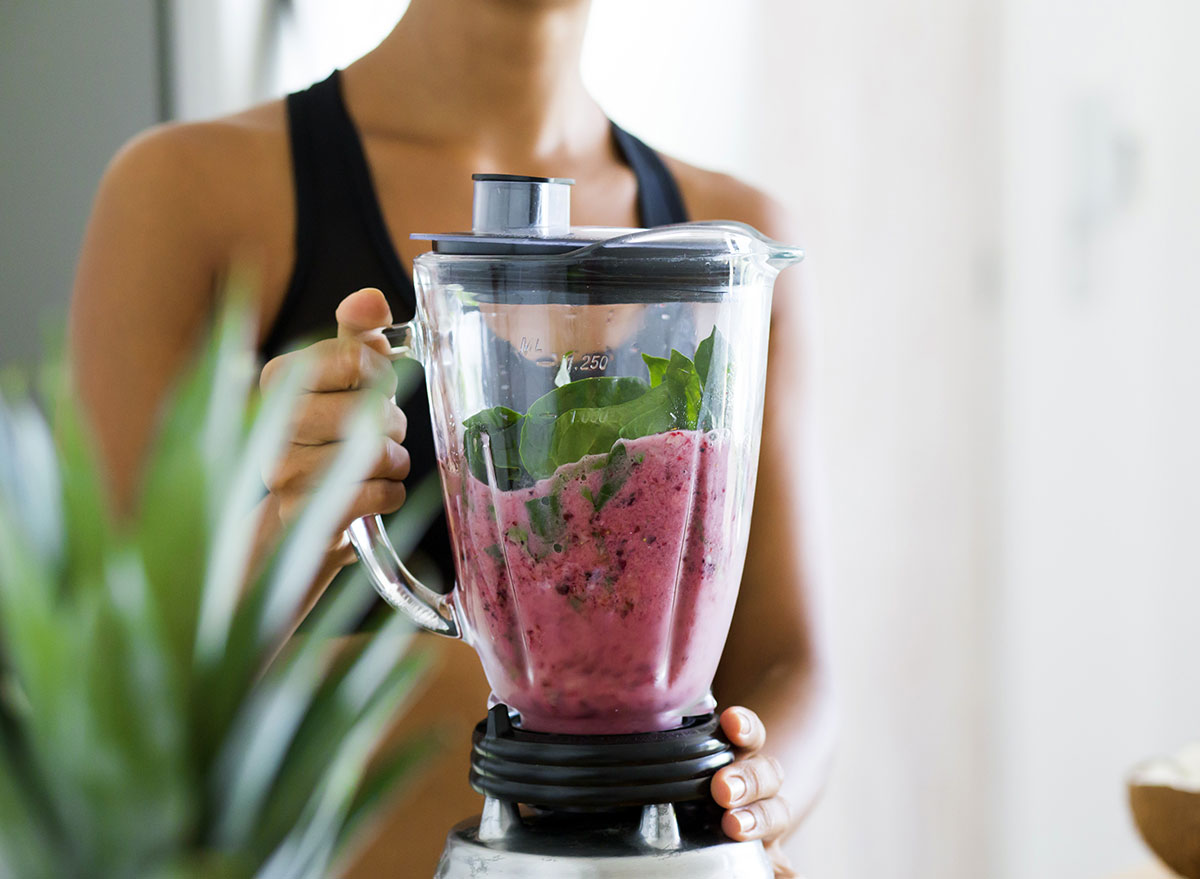
Just like guzzling a juice regularly, indulging in a daily smoothie habit isn’t necessarily health-and-longevity supportive. “While açai bowls and green smoothies are touted as a healthy daily habit, they have shown to result in lower satiety and can cause you to eat more calories later in the day,” says Duong. “This is because the fiber is taken out of fruit when it is juiced and smoothies are often energy-dense compared to their whole form (as fruit). A study comparing satiety between apples, apple purée, and apple juice found that apples were more satiating than apple purée and apple juice. Eating an apple with lunch reduced calorie intake by 15% compared to drinking apple juice,” she adds. Duong says it’s best to stick to the minimally processed form of fruit so you reap the benefits of its fiber, vitamins, minerals, and antioxidants. (Related: Smoothie Habits That Are Shortening Your Life, According to Science)
Making coconut oil your BFF.
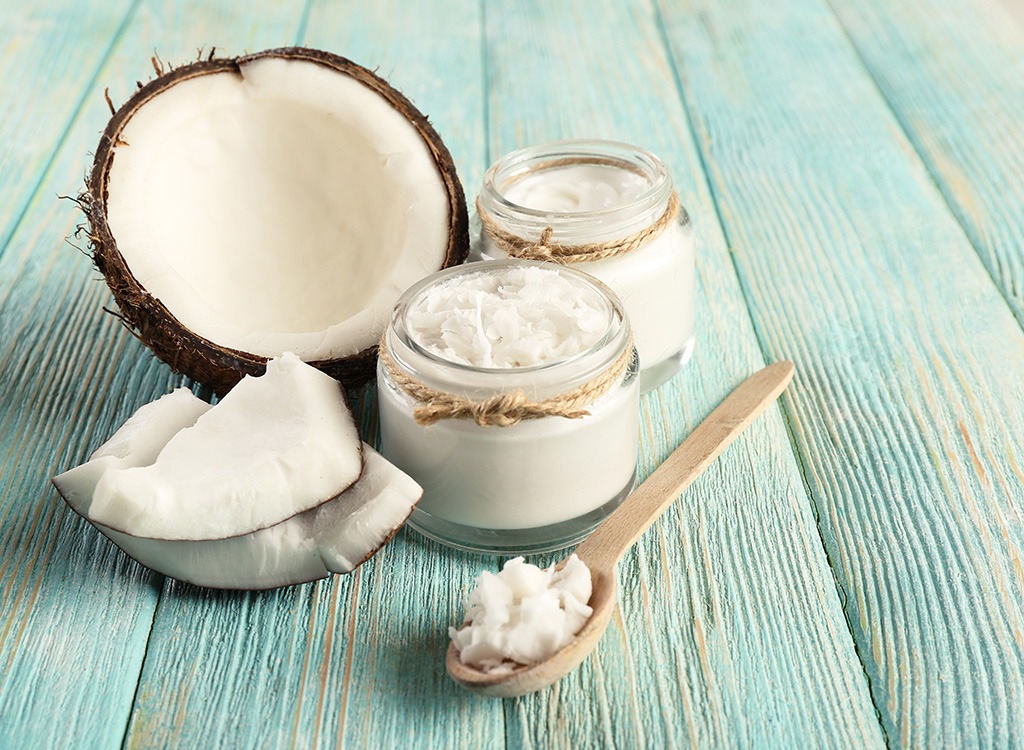
Whether you’re sautéing your veggies in the stuff or adding a tablespoon or two of it to your a.m. smoothie, it’s time to cut way, way back on coconut oil if you care about, you know, living a long, healthy life. “Coconut oil has been touted to have many health benefits,” shares Betz. “However, there is no research to support that coconut oil is good for us. In fact, coconut oil is higher in saturated fat than butter. Coconut oil is not recommended by the American Heart Association.”
As we also reported, an American Heart Association advisory published in the journal Circulation stated that replacing saturated fat—which makes up an impressive 82% of the fats found in coconut oil!—with polyunsaturated vegetable oil reduced cardiovascular disease by approximately 30%. Perhaps it’s time we revert to using coco oil mostly on the hair-and-skin moisturizing front, folks. Speaking of, read more about How Bad Is Coconut Oil For Your Health?